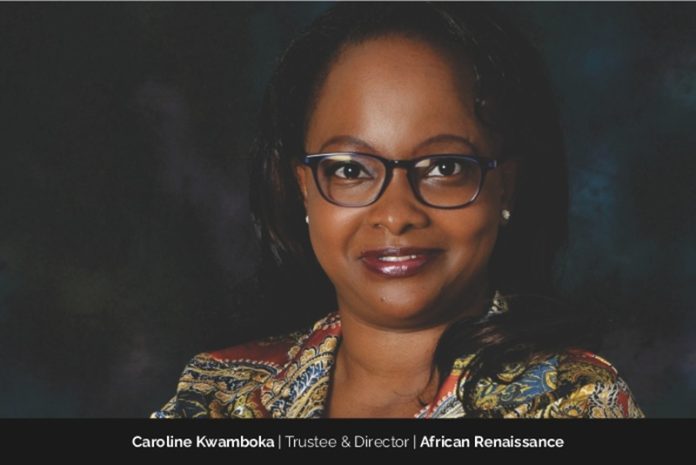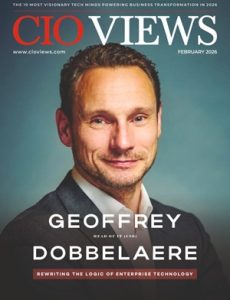Donor interventions have shaped Africa’s development landscape over the past halfcentury, influencing economic growth, social programs, and governance reforms. While great progress has been realized in many projects, the continent’s most pressing challenges remain unresolved.
In 2024, a World Bank report alarmingly revealed a concerning reality: although Sub-Saharan Africa makes up only 16% of the global population, it accounts for 67% of those living in extreme poverty.
Caroline Kwamboka N., Trustee and Director of African Renaissance, is concerned about her continents’ state of poverty. She is disturbed that despite efforts, poverty reduction seems to have slowed to a near standstill. She is leading efforts to reimagine tomorrow through African Renaissance.
Ms. Kwamboka believes that it is Africa’s citizens, policies, and responsive leadership that hold the key to Africa’s Next Chapter. “It is African- led and people-centered solutions that will secure and dignity, equality, equity, socioeconomic justice and the long-term impact that the African citizenry needs and deserves” she says.
As a Trustee and Founding Director, Ms. Caroline Kwamboka N., offers a radical departure from the current status quo. The future of Africa requires true socio-economic liberation and this means dismantling the structural, financial, and ideological systems that painfully continue to shackle African nations.
“Our leaders must make an uncompromising choice and deliver dignity, justice, and prosperity for our people,” she asserts.
“We seek an end to theatric declarations and performative freedoms in our lifetime – the only freedom worth having is the freedom that feeds us, heals us, empowers us, and values our voices” she insists.
Drawing on 24 years of experience in policy, advocacy, and governance across Africa, Asia, and Europe, Caroline seeks to bridge the gap and bring to the table decision-makers and those most affected by their choices.
This value-driven leader measures success in impact terms – lives changed, voices amplified, and policies implemented. Ultimately, Africa needs to reclaim and participate in the realization of its own development narrative,
The Turning Point at 40
Caroline has dedicated her expertise to serving society from the beginning of her career. By age 29, was already in a leadership position at a German organization, rising rapidly through the ranks. Before founding African Renaissance, her work took her to over 45 countries across four continents
A major turning point in her career came when she turned 40. “I reflected on my career and started asking tough questions,” she recalls.
Despite pouring her energy into countless initiatives, progress felt painfully slow, and the chasm between policymakers and communities seemed insurmountable.
Reflecting on the most prominent, well-funded programs – she noticed a glaring omission: everyday citizens voices were never truly heard. What they said was hardly considered in budget decisions, in gender equality efforts, or in health equity initiatives.
“The citizens seemed to be recipients of incomplete solutions borne far away from their realities.
The disconnect between policymaker priorities, funded projects, and people’s lived realities was profound,” she says.
This was the point at which her journey of reflection and rediscovery begun. Waves of inspiration kept flowing from the 1940’s seminal writings of Cheikh Anta Diop; the 1960’s song of the Pan-Africanists and fearless activism of the “Lioness of Lisabi”” Funmilayo Ransome- Kuti.
Caroline defines H.E. Thabo Mbeki’s 1990’s work on African Renaissance as a lighthouse, a beacon of hope, and an awakening for the continent. HE Mbeki implores us to break free from the past and reclaim our place as a prosperous and influential force in the world.
Caroline is persuaded that the time has come for this generation to carve out its own Renaissance.
For her, the moment has arrived to recalibrate the social contract – we need to normalize the fact that leadership is a responsibility to serve, uplift, and empower.
“Connect, Inspire, and Activate” have became her guiding ethos, fueling her mission to ignite conversations, mobilize action, and create spaces where citizens, especially the women and young people – cease to be spectators and begin to be active architects of Africa’s renewal and future.
Today, as Trustee and Director of African Renaissance, Caroline firmly believes that informed citizens hold the key to shaping Africa’s Next Chapter. Despite the obstacles, she remains, above all, prayerful, resilient and dynamic, never giving up until real change takes root.
“This is not easy,” Caroline admits. “But the future belongs to those willing to lead new conversations, build new models, and invest in Afrocentric, people-centered solutions that prioritize dignity, equity, and justice.”
Setting Up African Renaissance
Caroline considers the founding of the African Renaissance Trust as one of her greatest achievements. She chose to establish it to continue Cheikh Anta Diop’s giant legacy.
“We set up to provide both service and wisdom,” Caroline says and she insists she is forever indebted to her ever supportive Spouse and amazing Board of Trustees and Directors.
She believes Africans have far more to offer Africa, and hopes the world will gain deeper insights into the continent’s beautiful realities, not just the bad.
Africa faces explosive demographic growth. With the continent’s population projected to surpass 2 billion by the late 2040s – and with 70% of that populace already under the age of 30 – we face both an urgent challenge and extraordinary potential. If rising inequality and widespread socioeconomic vulnerabilities remain unaddressed, these demographic shifts threaten to deepen instability; yet, if harnessed, they can power an unprecedented wave of development and innovation.
African Renaissance re-imagines tomorrow’s development through the lens of African-led, people-centred solutions. By elevating African expertise, reshaping policies, and centering local ownership, this women-led think tank seeks to address Africa’s most pressing challenges. Embarrassed by the “empty begging-bowl” legacy of external over-reliance, African Renaissance underscores and challenges local leaders to step in and amplify the continent’s capacity for domestic financing and homegrown interventions.
African Renaissance investment is in cutting-edge market analysis and development intelligence. It finds ways to turn the realities of often-overlooked demographic bulge into a wellspring of policy solutions and momentum. In doing so, it paves the way for self- determination and collective prosperity.
As a prolific author, co-author, and editorial director, Caroline considers the “State of African Women” report as another of her great accomplishments. The report that was published in 2018 is second to none and stands as a transformative milestone in advancing African women’s rights and driving the African Renaissance.
As the Principal Editorial Director during her time at the IPPF
Africa Regional Office, Caroline harnessed the power of rigorous research, strategic advocacy, and dynamic coalition-building to produce an evidence-based policy implementation tracker. Through her leadership, the report has equipped civil society and decision-makers with the insights needed to confront gaps, mobilize resources, and push for concrete change at the national, regional, and continental levels. She is currently working on an AI driven tracking tool and hopes that it will service citizens with real time accountability instruments.
Three years ago, she led the development of a mainstreaming strategy for Gender Equality, Youth and Social Inclusion in collaboration with the African Ministers Council for Water and Sanitation and the African Population and Health Research Centre. She and her team successfully modeled a professional solution that was co- created and embraced by a sector not traditionally composed of gender experts. According to Caroline, ministers of water and sanitation across Africa now have a toolkit that has been reviewed and validated by all the 55 member states of Africa.
Leaders re-impressed by the simplicity, functionality, and impact they’ve achieved with the toolkit at the decision-makers level – all aimed at better- understanding and serving citizens needs. “This is success for me,” Caroline underlines. According to her, this work, that was initially focused on sanitation, will be scaled to reach 5 additional sectors, including energy, agriculture, health, infrastructure and ICT. This represents a significant achievement in collaborative change, influence, and policy development, through what Caroline calls “political re- socialization”.
Navigating Barriers and Finding Champions
The space that paused the hardest tests also offered me the greatest opportunities,” Caroline recalls. Earlier in her career, she encountered bias and skepticism – both as a young African woman and as a vocal advocate for gender equality, sexual reproductive health and rights, health financing and accountability.
Stepping into global roundtables was sometimes met with unconscious stereotyping: “Who is this young African woman to question our protocols and financing criteria?” Yet amidst the skepticism, Caroline found pivotal mentors and sponsors- senior officials and her very own directors who fought to ensure her voice influenced decisions on behalf of African women and girls.
Despite this, she powered through good times and though resistance. “My youthful age and origins did not undermine my confidence.” Every new layer of hesitancy across borders ignited her to press on, fueled by a fierce sense of purpose and unwilling to let gatekeepers stall her progress.
Over time, Caroline’s resilience and determination reshaped many barriers into bridges. “I can confidently take part in high-level conversations in Dakar, Geneva, Lusaka, New York or Pretoria, – anywhere. For her, this hard-won seat on the table ensures women, youth, and marginalized groups have a genuine voicer of core concerns. Today, whenever someone wonders if she “belongs” in a room, Caroline’s response is clear: “I’m here as a daughter of Africa to support and find a pathway to help –
A Day in My Life
Every morning, I start my day in prayer and as a mum, I race through my domestic responsibilities, servicing my family in the best way I can. I then take on a brief exercise regime and a very light meal to energize my system.
Soon I am reminded in my quiet time that the ‘Africa our citizens want and deserve’ is within reach: an Africa where dignity is a non-negotiable, health is guaranteed, and opportunity is shared. And I reminisce that this future that is free from poverty, inequality, and exclusion; won’t arrive on its own, and that it requires servant leadership, initiative, strategic partnerships, synthesis of knowledge, political will, and a relentless focus on accountability.
And I get fired up by distant sound of the drums of Timbuktu and energized by the drummers of Bujumbura.
Soon, I get drumming too towards transformational development for all – and as my day to day conversations and work go on, I realize that Africa stands on the edge of its next great awakening beckoned by a future where prosperity is crafted by our own hands.
Africa can no longer be a continent of endless speeches – we must shed the mantle of hollow declarations and deferred dreams.
“I choose action over applause; and solutions over rhetoric.I am after the socioeconomic liberation of our people and I am persuaded that this is the work that must define our era, ” she reiterates.
Africa’s Future
“When the voices of resilient citizens meets the rhythm of transformative policy and the heartbeat of courageous leadership, Africa’s finest chapter will rise,” Asserts Caroline. Realizing the ‘Africa that Citizens Want’ – with opportunities, inclusion, and prosperity – requires bold efforts, transparency, partnerships, strategic tools, and practical levers that can transform continental commitments into concrete change and tangible progress.
“This is not easy,” Caroline admits. “But the future belongs to those willing to build new models that combust policies on paper to realities at the village level. We must be ready to lead new conversations, and invest in Afrocentric, people- centered solutions that prioritize dignity, equity, and justice.”
This renaissance moment that is at hand calls for innovation and repositioning of Africa, as a continent of solutions, not problems and sorrow in perpetuity. We need to strengthen advocacy and we must support our institutions like the African Union and its constituent organs. We need to contribute to shaping the policies that will govern Africa’s future and we must create feedback loops between continental decision making processes and the citizenry.
She proclaims that socioeconomic independence is our next frontier, our turn-key opportunity, our unfinished revolution and the struggle must be won from within.





